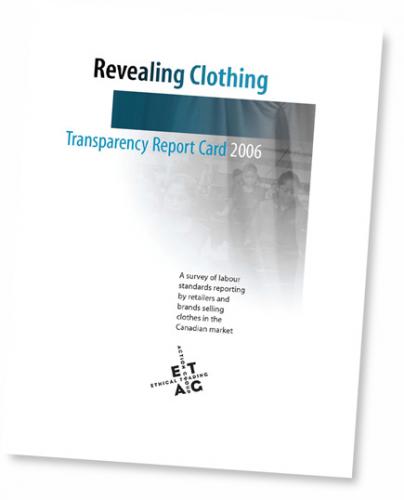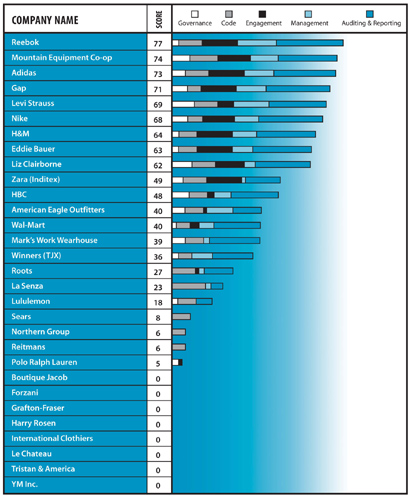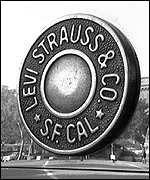WELCOME TO THE ARCHIVE (1994-2014) OF THE MAQUILA SOLIDARITY NETWORK. For current information on our ongoing work on the living wage, women's labour rights, freedom of association, corporate accountability and Bangladesh fire and safety, please visit our new website, launched in October, 2015: www.maquilasolidarity.org
 December 2006
December 2006
The Ethical Trading Action Group's (ETAG's) 2006 Transparency Report Card shows that companies are opening up on labour standards, but tackling labour rights abuses requires more worker involvement.
Revealing Clothing, ETAG's second Transparency Report Card, assesses and compares public reporting on labour standards compliance by 30 top apparel retailers and brands selling clothes in the Canadian market, including Levi Strauss, Nike, adidas, H&M, Mountain Equipment Co-op, Roots, La Senza, Reitmans and 22 others.
ETAG's 2006 Transparency Report Card assesses companies on the basis of their policies and programs to achieve and maintain compliance with recognized international labour standards in factories around the world where their products are made, and the steps they are taking to thoroughly, effectively and transparently communicate these efforts to the public.
The Report Card shows that over the past year, some major brands and retailers have improved reporting on labour standards compliance. Canadian companies Mountain Equipment Co-op, Mark's Work Wearhouse and the Hudson's Bay Company all improved their scores in this year's rating. But despite improvements in reporting there is still a long way to go to improve actual labour conditions in apparel factories worldwide.
Leading companies have publicly expressed a willingness to discuss root causes of persistent labour rights abuses in their supply chains. More companies are reporting training programs for factory management and other efforts to change persistent bad practices. But ETAG's study shows that companies are less willing to discuss how their own business model of ever-lower prices and highly-mobile production might be causing these problems.
Supply factories receive negative incentives when retailers and brands shift production from factories that have made improvements in labour practices to other countries with lower labour costs, or ask factory owners to meet higher standards while simultaneously demanding lower prices.
There is also a need for companies to engage on a consistent basis with factory workers, NGOs, faith groups, and trade unions in developing sustainable solutions. ETAG found that fourteen of the thirty companies surveyed reported engagement with NGOs and trade unions, up from only five in last year's report. However, with a few exceptions, most companies are not fully engaging factory workers in labour standards compliance efforts.
Company Ranking [updated January 29, 2007]

To order bound copies ($10/copy in North America, $20 outside North America), contact MSN.

In response to a decision by the UK Ethical Trading Initiative (ETI) to suspend Levi Strauss's membership for refusing to commit to the ETI Living Wage standard, Canada's Ethical Trading Action Group (ETAG) has reduced Levi's score in its 2006 Transparency Report Card from 1st to 5th place.
You can access the Ethical Trading Action Group's Transparency Report Card for a specific company here. Just choose the appropriate company from the list below. The company's overall score is listed in parentheses next to its name.
Access a full version of the 2006 report (pdf format) here
Access the 2006 Report Card of the retailer of your choice here
ETAG does not endorse any particular companies. We are urging consumers to demand sufficient information from all companies so they can make ethical choices on their own based on the information available.
The ETAG report shows that no major retailer or brand is currently providing customers or shareholders sufficient information to make ethical choices.